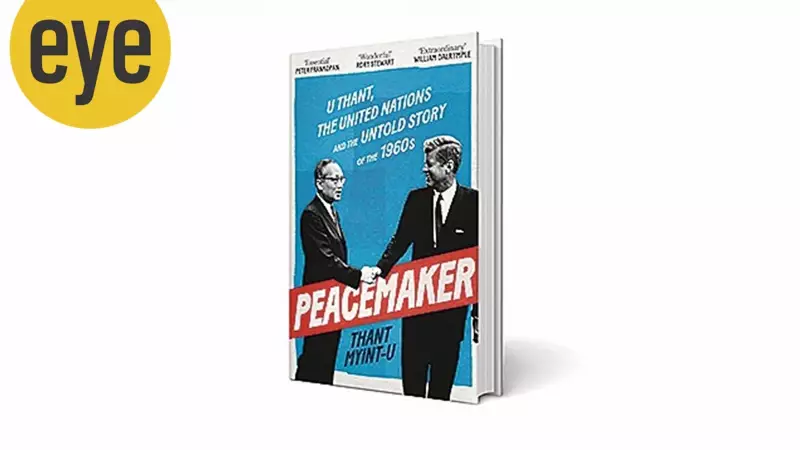
In the annals of United Nations history, one name remains conspicuously absent from popular memory: U Thant. The soft-spoken Burmese diplomat who served as the world's third Secretary-General from 1961 to 1971 was arguably the international body's most effective moral leader, yet today he languishes in historical obscurity.
The Unlikely Diplomat Who Changed Global Politics
U Thant's journey to the UN's highest office was anything but conventional. Hailing from a small town in British-controlled Burma, he began his career as a schoolteacher and journalist before entering diplomacy. His appointment came during one of the most turbulent periods in UN history, following the tragic death of Dag Hammarskjöld in a plane crash.
What made U Thant extraordinary was his unique approach to international diplomacy. Unlike his predecessors, he operated without the backing of major global powers, representing instead the emerging voice of non-aligned nations. This position, while challenging, granted him a moral authority that transcended Cold War politics.
Crisis Management During the Cold War
U Thant's tenure was marked by several critical interventions that potentially averted global catastrophe:
- The Cuban Missile Crisis (1962): His behind-the-scenes diplomacy created crucial communication channels between Kennedy and Khrushchev
- The Congo Crisis: He navigated complex peacekeeping operations in one of Africa's most volatile regions
- The Six-Day War (1967): His swift action helped contain Middle Eastern tensions
- The Vietnam War: He consistently advocated for peaceful resolution despite facing opposition from major powers
The Moral Authority That Challenged Superpowers
According to political commentator Pratap Bhanu Mehta, U Thant represented something rare in international politics: genuine moral authority. He fearlessly criticized both American involvement in Vietnam and Soviet interventions, maintaining that the UN's credibility depended on its ability to speak truth to power regardless of political consequences.
"U Thant demonstrated that moral authority in international affairs doesn't come from military might or economic power, but from consistent principles and courageous impartiality," notes Mehta in his analysis of the former Secretary-General's legacy.
Why History Forgot Its Most Effective Peacemaker
Several factors contributed to U Thant's historical obscurity:
- His quiet, understated personality contrasted sharply with the charismatic leaders of his era
- He represented the non-aligned movement at a time when Cold War narratives dominated historical accounts
- His criticisms of superpower politics made him unpopular with influential nations that shape historical narratives
- The complex nature of his achievements—preventing crises rather than winning dramatic victories—made them harder to memorialize
Lessons for Today's Global Governance
U Thant's legacy offers crucial insights for contemporary international relations. In an era of renewed great power competition and global challenges, his model of quiet diplomacy and moral consistency seems more relevant than ever. His ability to navigate between conflicting powers while maintaining ethical standards provides a template for modern conflict resolution.
The rediscovery of U Thant's contributions comes at a critical time when the United Nations faces questions about its relevance and effectiveness. His tenure reminds us that true leadership in global affairs often operates away from the spotlight, measured not by dramatic victories but by catastrophes prevented and principles maintained.





